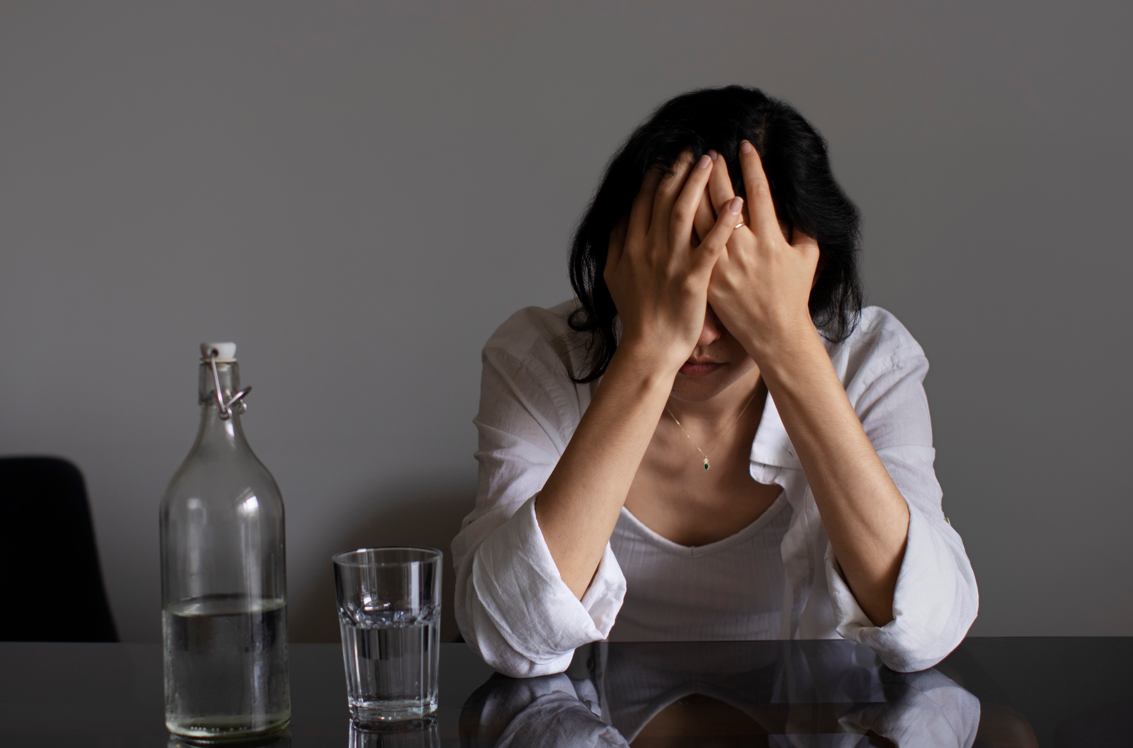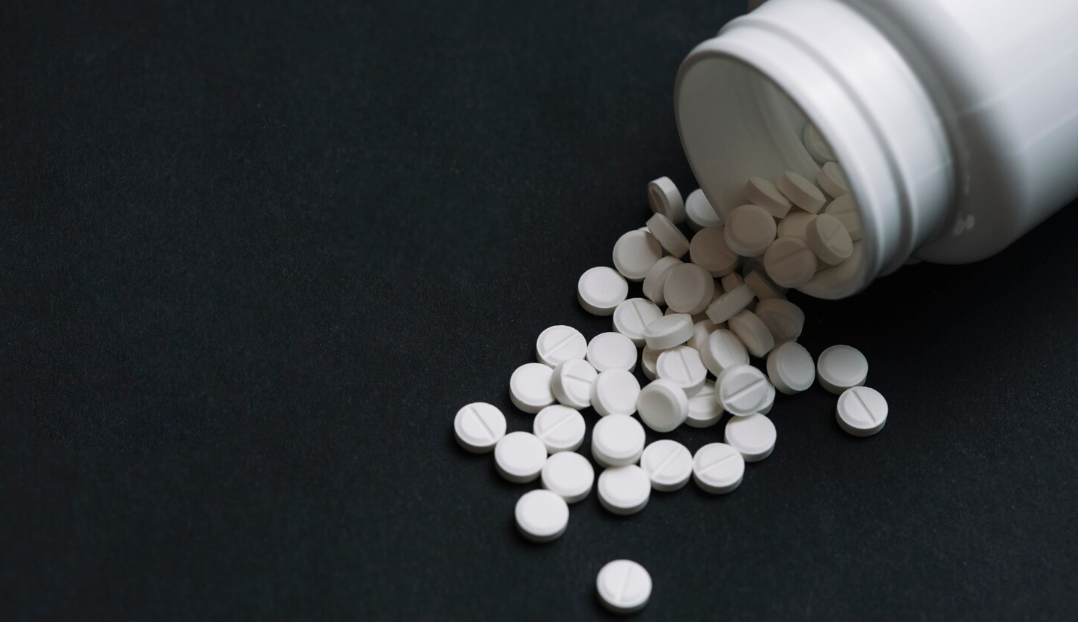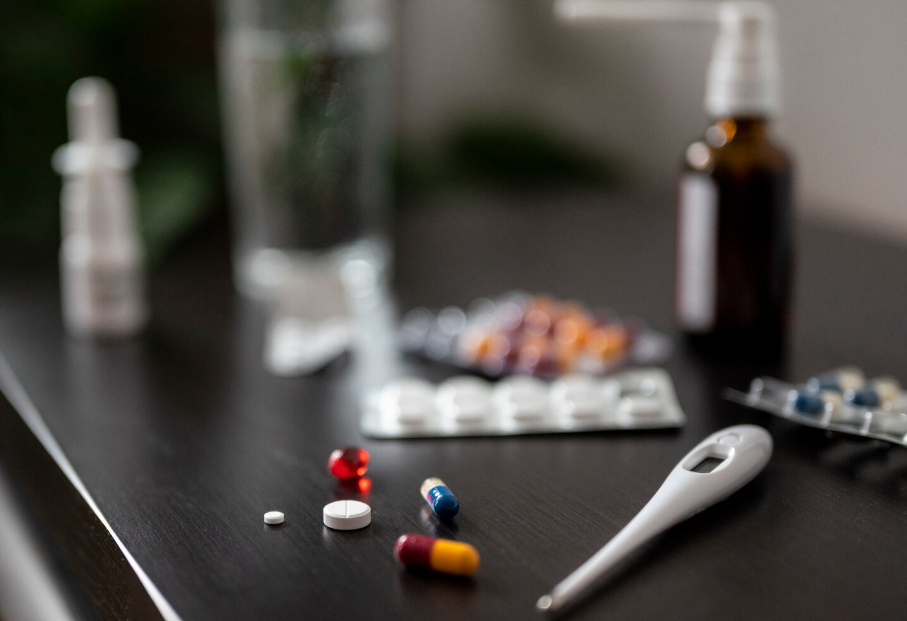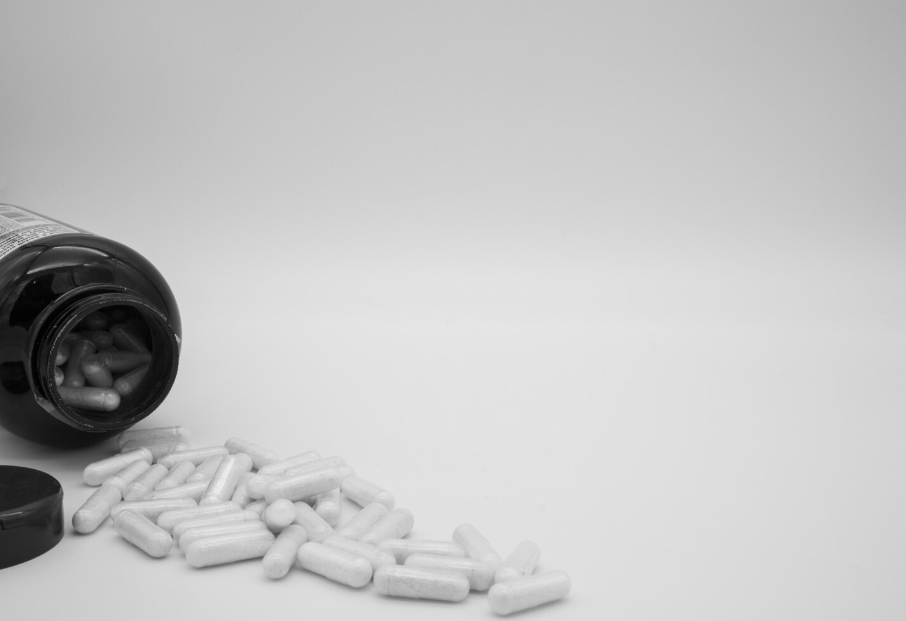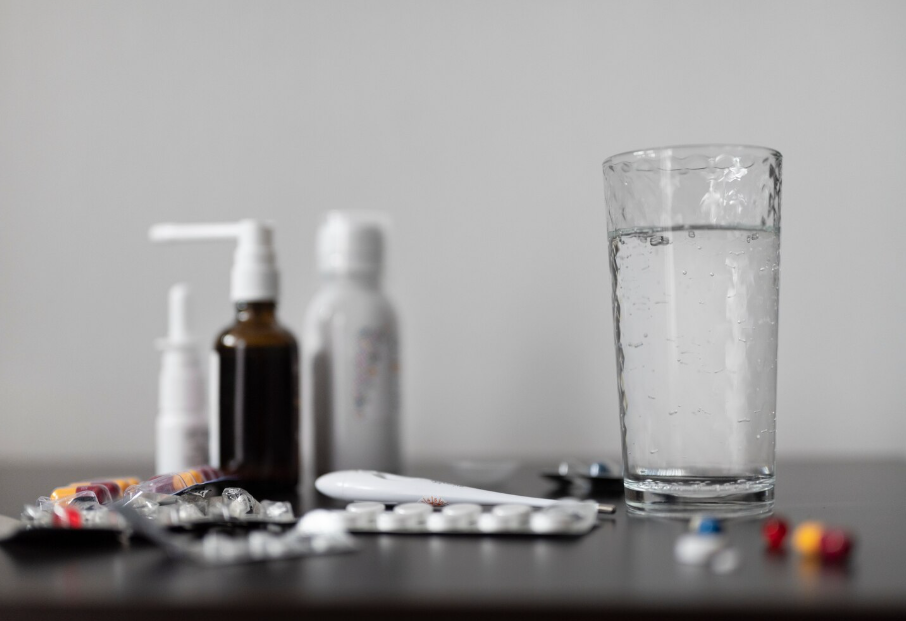What is a Wine Hangover?
A wine hangover is a type of hangover that is caused by drinking too much wine. If you've ever had one, you know how miserable they can be. It's not just the headache that comes with it, but also the nausea, fatigue, and dehydration that can make you feel like you're never going to recover.
These symptoms are caused by the toxic byproducts of alcohol metabolism, which can cause inflammation in the body and disrupt the body's natural balance. When the liver breaks down alcohol, it produces a toxic substance called acetaldehyde, which can cause headaches and nausea. This is why drinking water and staying hydrated is important when you're drinking wine or any alcoholic beverage.
.jpg)
To avoid a wine hangover, it's important to drink in moderation and to drink plenty of water throughout the night. Eating a healthy meal before drinking can also help to slow down the absorption of alcohol into the bloodstream. Remember, a wine hangover is not just a result of drinking too much, but also a result of not taking care of your body while you're drinking.
Why are Wine Hangovers the Worst?
Wine hangovers are often considered to be the worst type of hangover because they can be particularly intense and long-lasting. If you've ever had one, you know that the pain and discomfort can last for hours, even days. But why is this the case?
One reason is that wine contains a high level of tannins, which can contribute to headaches and nausea. Additionally, wine also contains histamines, which can cause inflammation and exacerbate allergy symptoms.
Another reason is that wine often contains sulfites, which are used as a preservative. Some people are sensitive to sulfites and can experience headaches, nausea, and other symptoms as a result.
Furthermore, the alcohol content in wine can dehydrate the body, leading to a range of unpleasant symptoms such as dry mouth, dizziness, and fatigue.
All of these factors can contribute to making a wine hangover particularly intense and long-lasting. To avoid such hangovers, it's important to drink in moderation and stay hydrated by drinking plenty of water.
Wine Contains High Levels of Congeners
Congeners are a group of compounds that are found in alcoholic beverages. They are produced during the fermentation process and can contribute to the flavor and aroma of the drink. However, the chemical composition of congeners can vary widely, and some congeners are also toxic in nature. When we consume alcoholic beverages, we are not only consuming the alcohol but also a cocktail of congeners.
In general, darker alcoholic beverages, such as red wine, brandy, and whiskey, contain higher levels of congeners than lighter beverages like gin and vodka. These congeners can contribute to the severity of a hangover, making it more intense and unpleasant.
Moreover, studies have shown that congeners can have a range of negative effects on the human body, including causing headaches, nausea, and other symptoms typically associated with hangovers. So, it's important to drink in moderation and choose your beverage wisely if you want to avoid a severe hangover the next day.
Wine Contains Sulfites
Sulfites are a type of preservative that is often added to wine to prevent spoilage. However, sulfites can also cause allergic reactions in some people and can contribute to the severity of a wine hangover. It's important to note that not all wines contain sulfites, and that the amount of sulfites in wine can vary greatly.
If you're someone who is sensitive to sulfites, it's essential to read the label of the wine bottle before purchasing. This way, you can avoid wines with added sulfites. Additionally, some wineries are now producing sulfite-free wines, which can be a great option for those who want to enjoy a glass of wine without worrying about adverse reactions.
It's also worth noting that sulfites are not just found in wine; they can be added to other foods and beverages as well. Some examples include dried fruits, canned goods, and fruit juices. It's important to be aware of the presence of sulfites in foods and drinks and to read labels carefully if you have a sensitivity or allergy.
Wine Can Cause Dehydration
Drinking alcohol can cause dehydration because it is a diuretic, meaning it increases urine production and can lead to a loss of fluids and electrolytes, which are essential for our body's proper functioning. The dehydration caused by alcohol can lead to several health issues such as headaches, dizziness, and fatigue.
Wine, in particular, can be particularly dehydrating because it contains high levels of alcohol and is often consumed in large quantities. Red wine, for instance, contains tannins that can cause dehydration and worsen hangovers. So, it is important to drink water or other hydrating fluids along with wine to prevent dehydration.
Moreover, dehydration caused by alcohol can also lead to a decrease in cognitive function and impaired decision-making skills. So, it is recommended to drink alcohol in moderation and to stay hydrated before, during, and after drinking to avoid the negative effects of dehydration.
How to Deal with Wine Hangovers?
If you have ever experienced a wine hangover, you know how unpleasant it can be. Fortunately, there are several strategies that you can use to deal with the symptoms and prevent future hangovers.
Drink Plenty of Water
Drinking water is one of the most effective ways to prevent and treat a wine hangover. Water can help to rehydrate the body and flush out toxins that contribute to hangover symptoms. It is recommended to drink at least one glass of water for every glass of wine that you consume.
Eat a Healthy Meal
Eating a healthy meal before drinking wine can help to reduce the severity of a hangover. Foods that are high in protein and healthy fats can help to slow down the absorption of alcohol and reduce inflammation in the body. Eating a healthy meal after drinking wine can also help to replenish lost nutrients and reduce hangover symptoms.
Take a Pain Reliever
Taking a pain reliever such as ibuprofen or aspirin can help to reduce headache and other hangover symptoms. However, it is important to avoid taking acetaminophen (Tylenol) because it can cause liver damage when combined with alcohol.
Drink in Moderation
The best way to prevent a wine hangover is to drink in moderation. This means limiting your intake of wine to no more than one or two glasses per day. It is also important to avoid drinking on an empty stomach and to alternate alcoholic beverages with water or non-alcoholic drinks.
How Different Types of Wine Affect Hangovers
Not all wines are created equal, and the type of wine you choose can have an impact on the severity of your hangover. Here's a breakdown of some common types of wine and how they can affect hangovers differently:
Red Wine
Red wine is a popular choice among wine lovers, but it is also known for causing some intense hangovers. This is because red wine contains high levels of tannins, which can contribute to headaches and nausea. Additionally, red wine often has a higher alcohol content than white wine, which can lead to dehydration and other unpleasant symptoms.
White Wine
Compared to red wine, white wine typically has lower levels of tannins and a lower alcohol content. This makes it a good option for those who want to enjoy a glass or two without experiencing a severe hangover. However, white wine still contains alcohol and can cause dehydration if consumed in large quantities.
Rosé Wine
Rosé wine is made by combining red and white grapes, giving it a unique flavor profile that is less intense than red wine but more flavorful than white. Like white wine, rosé typically has lower levels of tannins and alcohol than red wines, making it a good option for those who want to avoid severe hangovers.
Sparkling Wine
Sparkling wines like Champagne and Prosecco are often associated with celebrations and special occasions. However, they can also cause some unpleasant hangover symptoms due to their high sugar content. The bubbles in sparkling wines can also cause carbon dioxide to build up in the stomach, leading to bloating and discomfort.
Fortified Wines
Fortified wines like port and sherry are made by adding brandy or other spirits during the fermentation process. These wines typically have higher alcohol content than regular wines, which can contribute to more severe hangovers. Additionally, fortified wines may contain higher levels of congeners, which can make hangovers more intense and unpleasant.
In general, it's important to choose your wine wisely and drink in moderation to avoid severe hangovers. If you do experience a hangover, remember to drink plenty of water, eat a healthy meal, and take care of your body to help alleviate symptoms.
Why Are Some People More Susceptible to Wine Hangovers Than Others?
While wine hangovers can affect anyone who drinks too much, some people may be more susceptible to them than others. There are several factors that can contribute to this susceptibility.
Genetics
Genetics plays a role in how our bodies process alcohol. Some people have a genetic variation that makes it more difficult for their bodies to metabolize alcohol, which can lead to more severe hangovers. Additionally, genetics can also influence how sensitive a person is to certain compounds found in wine, such as tannins and sulfites.
Age
As we age, our bodies become less efficient at processing alcohol, which can make us more susceptible to hangovers. Older adults may experience more intense symptoms after drinking the same amount of wine as a younger person.
Gender
Women tend to be more susceptible to hangovers than men due to differences in body size and metabolism. Women typically have less water in their bodies than men, which means that alcohol is more concentrated in their bloodstream. Additionally, women have lower levels of an enzyme called alcohol dehydrogenase, which breaks down alcohol in the liver.
Dehydration
Dehydration can make hangover symptoms worse and can also make a person more susceptible to hangovers in general. If you're not drinking enough water while you're drinking wine or other alcoholic beverages, you may be more likely to experience a severe hangover the next day.
Underlying Health Conditions
Certain underlying health conditions can make a person more susceptible to wine hangovers. For example, people with migraines or allergies may be more sensitive to the histamines found in wine and therefore more likely to experience headaches and other symptoms.
Understanding these factors can help you take steps to prevent or minimize the severity of wine hangovers. Drinking plenty of water, choosing your wine wisely, and taking care of your body before, during, and after drinking can all help to reduce your risk of experiencing a wine hangover.
FAQs
Can I completely avoid a wine hangover?
While it's not possible to completely avoid a wine hangover, there are several steps you can take to minimize its effects. Drinking in moderation, staying hydrated, and choosing your wine wisely can all help reduce the severity of a hangover.
How long does a wine hangover usually last?
The duration of a wine hangover can vary from person to person and depend on factors such as the amount of alcohol consumed, the type of wine, and individual health factors. Generally, most people experience symptoms for 24-48 hours after drinking.
Is it safe to take pain relievers for a wine hangover?
It is generally safe to take pain relievers such as ibuprofen or aspirin for a wine hangover. However, it's important to avoid acetaminophen (Tylenol) because it can cause liver damage when combined with alcohol.
Does drinking water while consuming wine prevent a hangover?
Drinking water while consuming wine can help prevent dehydration and reduce the severity of a hangover. It's recommended to drink at least one glass of water for every glass of wine that you consume.
Are sulfite-free wines better for avoiding hangovers?
Sulfite-free wines may be a good option for those who are sensitive to sulfites or want to avoid them altogether. However, they may not necessarily prevent other causes of hangovers such as dehydration or congeners.
Conclusion
Wine is a popular drink that can be enjoyed in moderation. However, drinking too much wine can lead to unpleasant side effects such as wine hangovers. Wine hangovers are often considered to be the worst type of hangover because they can be particularly intense and long-lasting. Fortunately, there are several strategies that you can use to deal with the symptoms and prevent future hangovers. Drinking plenty of water, eating a healthy meal, taking a pain reliever, and drinking in moderation are all effective ways to reduce the severity of a wine hangover.


.jpg)




